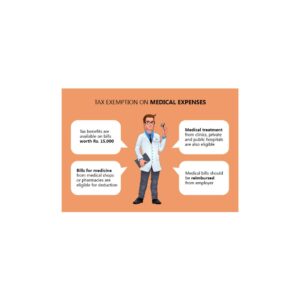![]()

Tax planning for hospitals
Tax planning for hospitals involves implementing strategies and utilizing provisions within the tax code to optimize the tax position of the hospital.
Here are some key considerations for tax planning in the hospital industry:
1. Non-profit Status:
Many hospitals operate as nonprofit organizations, which may qualify them for tax-exempt status. Tax planning for nonprofit hospitals involves ensuring compliance with the requirements for maintaining tax-exempt status and maximizing the benefits associated with it.
2. Charitable Contributions:
Hospitals often receive charitable contributions from individuals, corporations, and other entities. Tax planning involves understanding the tax implications of these contributions, including deductions available to donors and the requirements for substantiating and reporting charitable contributions.
3. Exemptions and Deductions:
Hospitals may be eligible for specific exemptions or deductions available under the tax code. This can include exemptions from certain taxes or deductions for qualifying expenses, such as research and development costs or investments in community health programs. Tax planning involves identifying and leveraging these opportunities to reduce the hospital’s tax liability.
4. Compliance with Healthcare Regulations:
Tax planning for hospitals also requires staying up-to-date with the ever-changing healthcare regulations. This ensures that the hospital maintains compliance with tax-related provisions specific to the healthcare industry. Such as provisions related to healthcare reform, Medicare, and Medicaid.
5. State and Local Taxes:
In addition to federal taxes, hospitals must consider state and local taxes, which can vary significantly. Tax planning involves understanding the tax laws in the relevant jurisdictions and implementing strategies to minimize the impact of state and local taxes.
6. Employment Taxes:
Hospitals have a large workforce and tax planning includes considerations related to employment taxes, such as payroll taxes, fringe benefits, and employee classification. Proper classification of workers and compliance with employment tax requirements are essential for minimizing tax risks.
For more information to visit- https://www.incometax.gov.in
7. Capital Expenditures and Depreciation:
Hospitals often have significant capital expenditures, such as investments in medical equipment, facilities, and infrastructure. Tax planning involves optimizing the depreciation deductions available for these assets over their useful lives, potentially providing significant tax benefits.
Overall, tax planning for hospitals requires a comprehensive understanding of both the tax code and the unique characteristics of the healthcare industry. By implementing effective tax planning strategies, hospitals can minimize their tax liabilities, maximize available tax benefits, and allocate resources more efficiently toward providing quality healthcare services.
FAQs
1.What is tax planning for hospitals?
Answer: Tax planning for hospitals involves strategies to minimize tax liability while complying with tax laws specific to healthcare organizations.
2. Are hospitals eligible for tax exemptions?
Answer: Yes, many hospitals, especially non-profit ones, can qualify for tax exemptions under certain conditions, such as providing community services.
3. What types of taxes do hospitals need to consider?
Answer: Hospitals need to consider income tax, property tax, payroll tax, and sales tax, depending on their structure and operations.
4. How can hospitals benefit from deductions?
Answer: Hospitals can claim deductions for operational expenses, salaries, and medical supplies, which reduce taxable income.
5. What is the significance of maintaining proper documentation?
Answer: Proper documentation helps hospitals support their tax deductions and exemptions during audits and ensures compliance with tax regulations.
6. How can hospitals manage payroll taxes effectively?
Answer: By keeping accurate payroll records and understanding tax liabilities, hospitals can avoid penalties and optimize tax withholdings.
7. Are there any tax credits available for hospitals?
Answer: Yes, hospitals may qualify for various tax credits, such as those for energy efficiency improvements or providing charity care.
8. What role does strategic planning play in tax savings?
Answer: Strategic planning helps hospitals identify opportunities for tax savings, such as timing of income and expenses or restructuring operations.
9. How can hospitals use their charitable status for tax benefits?
Answer: By maintaining their charitable status, hospitals can receive tax-deductible donations and qualify for grants that support their operations.
10. Should hospitals consult tax professionals?
Answer: Yes, consulting tax professionals who specialize in healthcare can help hospitals navigate complex tax laws and optimize their tax planning strategies.
For further details access our website https://vibrantfinserv.com